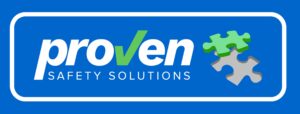Quality management systems (QMS) play a crucial role in ensuring that organizations consistently deliver products or services that meet or exceed customer expectations. There are several types of quality management systems, each with its unique approach and focus. Let’s delve into some of the prominent ones:
ISO 9001:2015 Quality Management Requirements
- Focus: ISO 9001 is one of the most widely recognised QMS standards globally. It emphasises a process-based approach to quality management and is applicable to any organization, regardless of its size or industry.
- Key Components: Customer focus, leadership, engagement of people, process approach, improvement, evidence-based decision making, and relationship management.
Six Sigma
- Focus: Six Sigma is a data-driven methodology aimed at improving processes and reducing defects. It seeks to identify and remove the causes of defects and errors and improve overall process performance.
- Key Components: Define, Measure, Analyse, Improve, and Control (DMAIC) is the structured approach used in Six Sigma. It employs statistical methods to identify and eliminate defects.
Total Quality Management (TQM):
- Focus: TQM is a holistic approach that involves all employees in the organization in a continuous effort to improve quality at every level. It goes beyond specific processes and aims to create a culture of quality.
- Key Components: Customer focus, employee involvement, process improvement, and the use of data and feedback for decision-making are essential components of TQM.
Lean Management:
- Focus: Originating from manufacturing, Lean Management focuses on eliminating waste and optimizing efficiency in processes. It aims to maximize customer value while minimizing resources.
- Key Components: Identifying and eliminating eight types of waste (defects, overproduction, waiting, non-utilized talent, transportation, inventory, motion, and extra-processing) are central to Lean Management.
Capability Maturity Model Integration (CMMI):
- Focus: CMMI is often used in software development and other engineering-related fields. It provides a framework for process improvement and helps organizations optimize their processes to increase efficiency and quality.
- Key Components: CMMI consists of five maturity levels, each representing a different level of process maturity and capability. Organizations progress through these levels as they improve their processes.
Risk Management:
- Focus: While not traditionally considered a QMS on its own, effective risk management is integral to maintaining quality. It involves identifying, assessing, and mitigating risks that could impact product or service quality.
- Key Components: Risk identification, risk assessment, risk mitigation, and continuous monitoring are essential elements of a robust risk management system.
These QMS approaches are not mutually exclusive, and organizations often integrate elements from multiple systems to create a tailored approach that aligns with their specific needs and objectives.
What’s the Difference Between QMS and Quality Assurance?
QMS (Quality Management System), refers to the overarching system put in place by an organization to manage and improve the quality of its products or services. It includes the organizational structure, processes, procedures, and resources needed to implement quality management.
QA (Quality Assurance), on the other hand, is a specific function within the QMS. It is a set of activities or processes within the QMS that are designed to ensure that the organisation is consistently meeting or exceeding specified quality standards.
I hope this overview gives you a comprehensive understanding of the different types of quality management systems. If you have any specific questions or if there’s a particular aspect, you’d like more information on, feel free to reach out to Proven Safety at any time.
If you have any specific aspects, you’d like more information on or if you have further questions, reach out by clicking here!



